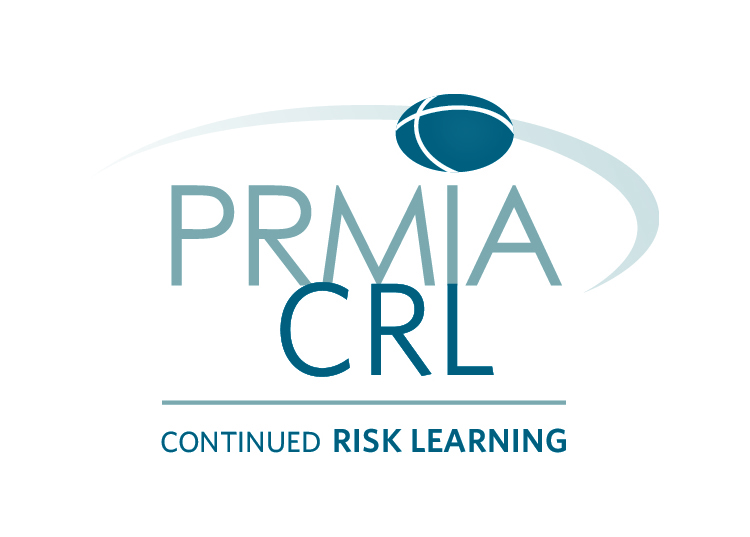 Course Access:
Course Access:
90-day course access from date of purchase
 Time:
Time:
On-demand, Self-study
 Instructor:
Instructor:
Sri Krishnamurthy, CFA, CAP
Founder & CEO, QuantUniversity
 Length/Duration:
Length/Duration:
6 Modules, 1.5 hours per module
| About This Course |
|
|
The use of AI and machine learning in finance has grown significantly in the last few years. As more and more AI and ML applications are being deployed in enterprises, concerns are growing about the increased complexity of models, the growing ecosystem of untested frameworks and products, potential for AI accidents, model and reputational risk. As the debate about explainability, fairness, bias, and privacy grows, there is increased attention to understanding how the models work and whether the models are designed and thoroughly tested to address potential issues.
The area "Algorithmic auditing" is fast emerging and becoming an important aspect in the adoption of machine learning and AI products in the enterprise. Companies are now incorporating formal ethics reviews, model validation exercises, internal and external algorithmic auditing to ensure that the adoption of AI is transparent and has gone through thorough vetting and formal validation processes. However, the area is new and organizations are realizing there is an implementation gap on how Algorithmic auditing best practices can be adopted within an organization.
In this course, we introduce Algorithmic auditing and discuss the various aspects of Algorithmic auditing when operationalizing it within the enterprise. We discuss the emerging risks in the adoption of AI and discuss how to address the emerging needs of formal Algorithmic auditing practices.
This course is a part of the QuantUniversity Machine Learning and AI Risk Certificate Program.
Take advantage of additional discounts by enrolling in the Certificate program.
|
| Outline |
| Lesson |
|
Topic |
| Module 1 |
|
Introduction to Machine Learning and AI
|
| Module 2 |
|
The Algorithm Audit
- The Algorithmic Audit Framework
- Internal and External Audit Considerations
- Industry Case Studies
|
| Module 3 |
|
The Alogrithmic Audit Process
- 5 Things To Note When Auditing An Algorithm: Use Case, Data, Model, Environment, Process
- Scorecards, Synthetic Data,Verification Vs Validation
|
| Module 4 |
|
Scoping the Algorithmic Audit
- How Do You Scope An Algorithmic Audit?
- Methods For RPA Processes, Data Handling, Algorithms (Blackbox, Grey Box, White Box), Roles, Responsibility, Governance And Stakeholders
|
| Module 5 |
|
Key Aspects of an Agorithmic Audit
- Issues Of Fairness, Bias, Interpretability, Explainability, Rating, Key Metrics, Model Failures, Incident Reporting, Model Risk, AI Insurance
|
| Module 6 |
|
Case Study
- With A Sample Machine Learning Model, conduct A Full Algorithm Audit With The QuSandbox
|
| Who Should Attend |
|
-
Risk professionals
-
Model Validators
-
Model Auditors
-
Data Scientists
-
ML engineers and Software engineers involved in ML and AI deployment
|
| About Our Expert |
|
|
|
 |
|
Sri Krishnamurthy, CFA, CAP is the founder of QuantUniversity, a data and quantitative analysis company. His experience includes analytics, quantitative analysis, statistical modeling and software development. He is a quantitative specialist with significant experience in designing data mining and analytic systems for some of the world’s largest asset management and financial companies.
Sri has worked at MathWorks as a Computational Finance Consultant where he worked with customers providing asset management, energy analytics, risk management and trading solutions. Prior to that, Sri was a consultant at Endeca (now Oracle) in their Analytics Group and at Citigroup in their Fixed-Income Group building large-scale analytical and trading systems.
Sri is a Charted Financial Analyst and a Certified Analytics Professional. He is an active member of the Boston Security Analysts society and QWAFAFEW. He is the creator of the Fintech Certificate Program & Analytics Certificate Program and teaches graduate courses in Quantitative methods, Data science and Analytics and Big Data at Babson College, Northeastern University and Hult International Business School.
|
| Continued Risk Learning Credits: 9 |
 PRMIA Continued Risk Learning (CRL) programs provide you with the opportunity to formally recognize your professional development, documenting your evolution as a risk professional. Employers can see that you are not static, making you a highly valued, dynamic, and desirable employee. The CRL program is open to all Contributing, Sustaining, and Risk Leader members, providing a convenient and easily accessible way to submit, manage, track and document your activities online through the PRMIA CRL Center. To request CRL credits, please email [email protected].
PRMIA Continued Risk Learning (CRL) programs provide you with the opportunity to formally recognize your professional development, documenting your evolution as a risk professional. Employers can see that you are not static, making you a highly valued, dynamic, and desirable employee. The CRL program is open to all Contributing, Sustaining, and Risk Leader members, providing a convenient and easily accessible way to submit, manage, track and document your activities online through the PRMIA CRL Center. To request CRL credits, please email [email protected].
| Registration |
| Membership Type |
Price |
| |
|
| PRMIA Network - Use Promo Code: PRMIA100 to apply discount |
$ 599.00 |
| General Public |
$ 699.00 |
QuantUniversity Registration Policies
This course is being delivered by a PRMIA Training Partner, QuantUniversity. All registrations, payments, and course operations will be managed exclusively by QuantUniversity.
When registering for the course, you will leave PRMIA.org and use QuantUniversity's registration system, proprietary learning management system, and QuSandbox for labs.
Questions and requests should be directed to QuantUniversity at: [email protected].
Please review QuantUniversity's cancellation and refund policy at the time of purchase, as their policies supersede PRMIA's policies.
Need Support?
Contact our training partner for questions about the course, group registrations, and technical support at: [email protected]
Access
Immediate access to the course is granted for 90 days after your purchase.
If this is your first time accessing the PRMIA website you will need to create a short user profile to register. Save on registration by becoming a member.
Register Now